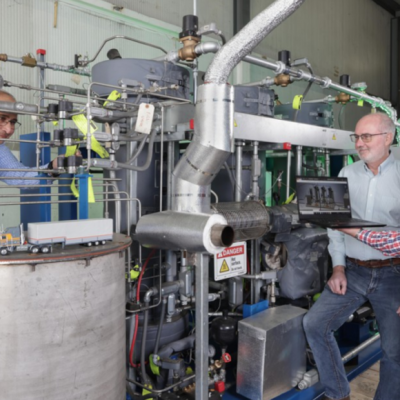Revolutionizing the logistics industry, RFID technology offers companies, warehouses, and service providers the optimal way to track and trace their products and monitor their locations. However, many companies still rely on manual systems for their track and trace needs, with only large, high-revenue businesses utilizing automatic technologies like RFID. The reason for this is simple: implementing such a system can be time-consuming and costly.
An RFID chip consists of a transponder and a reader or receiver. The transponder acts as an electronic data storage device, containing all the necessary information about the product it is integrated into. When the transponder and reader are in close proximity, they trigger a mutual communication through coupling elements in the form of antennas. The resulting data exchange works through magnetic or electromagnetic waves. There are two types of RFID: passive and active. Passive RFID transponders do not have their own electrical power and require activation by the reader. Active RFID, on the other hand, has its own electrical power and can be read quickly and over longer distances.
Despite the numerous advantages of RFID, it may never fully replace barcode systems due to the immense cost difference. Therefore, it may be more advantageous for smaller companies to rely on conventional barcodes. However, the technical progress of RFID systems has led to a revolution in the logistics industry, with increased transparency, improved efficiency, and cost savings. The tracking and tracing of products has become an essential factor in logistics, with customers wanting to know the whereabouts of their orders. RFID systems have become a key factor in optimizing logistics operations, particularly for transport companies that need to work efficiently due to just-in-time deliveries, competition, and congested traffic routes.
Although RFID systems are still expensive and may only be financially feasible for large companies, research is underway to make transponders more affordable for small and medium-sized businesses. The future of RFID systems is promising, with the potential for a worldwide network to eliminate intercontinental disruptions. While there are still technical issues to be resolved, RFID systems are the future of product and supply chain management.










